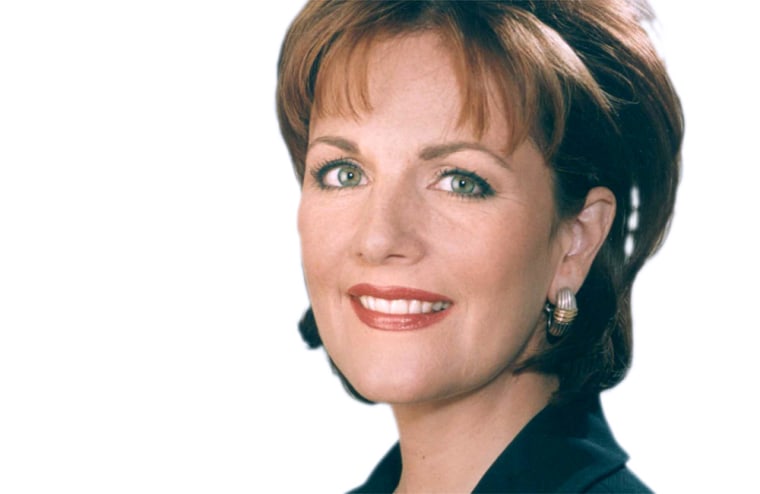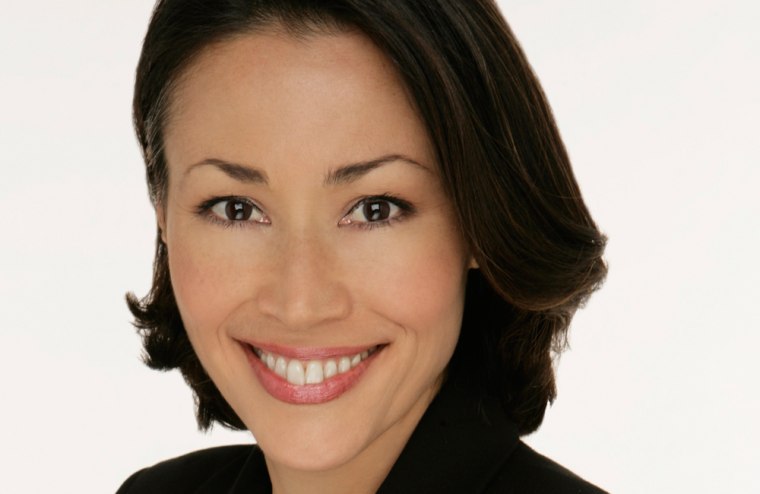• Oct. 5, 2006 |
Grace and dignity after Colo. tragedy (Meredith Vieira, NBC News anchor)

Bailey, Colorado is a small, tightly knit town. The people describe themselves as “mountain folk,” and that’s not something I run into in Manhattan.
It’s been over 10 years since I put on my reporter’s hat and went into the field, and I have to say, I’ve missed this tremendously. There is something so gratifying about telling other people’s stories; it is truly an honor to have the job of giving people a voice if they want one.
, who lost her life a week ago when a man wearing a hooded sweatshirt and carrying a back pack took her classroom hostage at Platt Canyon High School in Bailey, Colorado.
The people of Bailey ask "Why here? Why take away our county?" Yet because they are such a cohesive, tightly-knit community, they seem emotionally equipped to handle this. They are determined not to let evil win. They are determined to find some meaning in this tragedy.
When Emily was trapped inside that classroom with the words “I love you guys” and that has become the name of a foundation being established by the family in her honor. They hope to use the money to help the families of the five young girls who survived the ordeal. They have decided that from a random act they would ask people to perform random acts of kindness.
How do you even start a conversation with people who have undergone such trauma yet they are embracing you? I only hope that if I was in that situation, that I would have the grace and dignity of these people in Bailey.
This morning I am able to speak with the sheriff, Fred Wegener, a quintessential police officer who, after four hours of negotiating, made the decision to send in law enforcement. It was the hardest decision of his life, a decision that ultimately cost Emily her life. Nobody in the town blames Fred Wegener, but when I meet him I see he is filled with tremendous self doubt and pain. I stand up and feel the need to hug him much like this community has embraced him. It is hard to go back into "reporter mode" because I tear up; I am probably always going to be a mother first. He was the cop, I was the reporter and very slowly we became two people.
I wish I could stay here for weeks. To meet more people. To tell more stories. It’s like the peeling of an onion…I realize it’s good to leave New York and go back into the country. You forget there’s a big world out here. It’s nice to reconnect with this place called America.
A full report on airs "Dateline" on Saturday. .
• October 6, 2006 |
Columbine's lasting scars... and hope (Sara James, Dateline correspondent)

On April 20th, 1999, I was in Virginia on another story when I learned of the shooting in Littleton, Colorado. I got onto the next plane to Denver, and met Craig Scott and his family a few days later. Craig's sister, Rachel, had been the first to die in the shooting rampage at Columbine High School. While Craig was physically unharmed, his ordeal in the school's library, listening to young friends die, combined with losing his sister, was a devastating double blow.
I have always found that one of the hardest parts of reporting is to cover a story for days on end, only to have to leave for the next assignment, still wondering and worrying about those whom you left behind. What happened to them? Are they okay? Never had that seemed more true than on this occasion. So with the family's agreement, we followed their ordeal for the next year. We would be there to bear witness to what had happened, to tell the story of how their lives changed.
I knew this assignment would be difficult. What I didn't know was how personal it would become. There was simply no way to see Craig and his wonderful family month after month without growing to love them. They are, quite simply, exceptional people. Their courage, faith, and support for one another were astounding. But to see what they had to endure was torture. After a day spent doing interviews with the family, we would return to our hotel, spent and silent. Again and again we asked them if our presence was intrusive, but they were firm in their belief that it helped to talk. They wanted a record— a testament to Rachel's life and to Craig's healing. But we could never let go of the worry. How would they make it through this?
We gave Craig a camera with which to document his ordeal when we weren't around. One day in the spring of 2000, producer Andi Gitow rushed into my office with some tapes she'd just gotten from Craig. One showed him, up on a roof, in the middle of the night, brandishing a knife for protection. We immediately called to check on him. He was okay, but the video was a sobering account of how dark, how deep, how desperate his journey was.
And yet, as month followed month, we watched Craig and his incredible family do the unimaginable, and find ways to harness sorrow, to begin to heal. Again and again, they credited their powerful faith. One another. Counseling. And Craig began to speak out, telling other students about his sister, Rachel, and bringing home the horrific consequences of such senseless violence. Craig said his most important step was to forgive the gunmen, and that doing so set him free.
And now it is seven years later. What began as a one-year project hasn't really ended. I still keep up with Craig, check in on how his family is doing. And his remarkable family is doing remarkably well. Craig continues his active speaking schedule in hopes of preventing other school shootings. Meanwhile, the time spent videotaping his own story sparked an interest in making movies. He's in film school, and has already worked with some major Hollywood types, but remains as down-to-earth as ever.
I tell Craig I feel like a proud aunt. I am supremely happy to see him doing well. His courage, his wisdom, and his compassionate heart continue to inspire me. I have no doubt that one day, probably before long, I'll be in a theater watching one of his movies. I can hardly wait.
Hear more of Craig's story on Dateline Saturday, 8 p.m., Oct. 7.
• Oct. 4, 2006 |
Incredible forgiveness (Ann Curry, NBC anchor)

Today, with tears in his eyes, a minister described to me seeing an Amish mother embalming her 13-year-old daughter Marian, who was shot in the forehead at the school.
She was carefully and lovingly dressing her girl in white, even putting the cotton in her nose.
All around the family watched, crying softly, even the little children, who listened as their grandfather told them not to hate the gunman who did this.
"Forgive," he was instructing them... "forgive, as God forgives us..."
Reverend Rob Schenck, called it the most powerful moment in all his 25 years as a minister.
This forgiveness seems especially incredible, coming on the same day the coroner is being reported to have counted almost 20 bullet wounds in the body of a 7-year-old girl.
An Amish woman told me perhaps the good that might come of this tragedy is, "We can tell people about Christ and actually show you in our walk that we forgive, not just say it, but in our walk of life. You know you have to live it, you can't just say it. "
I realize I did not know what forgiveness was until now.
Ann Curry continues her reports on the deadly school shootings that took place in an Amish schoolhouse on Dateline Saturday.